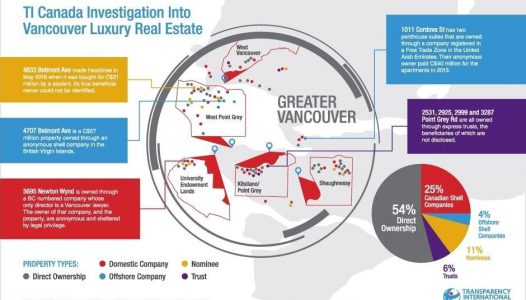by Ahsan Habib
It seems to be a reasonable enough assumption that a dedicated money launderer would be able to utilise crowdfunding to wash their dirty money.The features facilitating the exploitation of crowdfunding for money laundering include the lack of legal regulations imposing a direct obligation to identify clients of crowdfunding platforms, as well as the absence of supervision of their activities. This can generate such threats as the mingling of income from legal and illegal sources, transferring criminal proceeds to persons conducting crowdfunding, and legitimating assets through the organisation of crowdfunding campaigns.
The core principles underlying the concept of crowdfunding itself: flexibility and simplicity. From the outset, banks looked at crowdfunding with a certain aloofness. Crowdfunding is used in support of a wide variety of activities, including disaster relief, citizen journalism, support of artists by fans, political campaigns, and increasingly for startup company funding.
A long-overdue issue that deserves more attention
Essentially, online crowdfunding platforms provide a funding mechanism that facilitate the exchange of money, goods or services between funders and fundraisers. Crowdfunding sites are easily accessible, simple to use, and still relatively new (and therefore don’t necessarily yet have advanced fraud controls or due diligence practices in place), they may be seen as an ideal avenue to launder money and commit other financial crimes. For example, someone funding a personal bank account with checks and cash deposits from foreign businesses and unidentified individuals then uses the money to invest in a fictional project or service collecting donations via a crowdfunding site. It’s also possible for individuals to receive deposits from a crowdfunding site and then structure withdrawals of cash from that account. In USA alone, over the past five years, cybercriminals have used crowdfunding websites to launder nearly $30 million. Millions more dollars stolen in cyber schemes have likely gone undetected. Crowdfunding websites, it turns out, provide the perfect laundering platform. The criminal launches a phony crowdfunding campaign and then makes donations to himself using the stolen credit card numbers. Moving quickly to avoid detection, the crook can cash in the crowdfunding account before anyone catches wind of the scam.
Equity Crowdfunding: A lucrative platform for Money Laundering
Equity crowdfunding platforms could be used to facilitate money laundering, in at least two ways: The distributor of an illegal product (narcotics, unregistered firearms, etc.) could create a sham company and market that company’s securities on an equity crowdfunding platform. Buyers could “legitimately” buy (worthless) shares via the platform, while also receiving the product on the side. Distributors would thus be able to receive funds electronically, rather than in cash, and could also aggregate multiple payments into one capital stream. The online nature of the payments makes them easier to integrate into the financial system than proceeds from cash transactions. Another way is :The distributor could create a fictional venture, and markets its securities via a crowdfunding platform. Through an online alias, the same distributor could also invest illicitly received money into its own venture (an easy way to move illegally gained money across borders).
Flashback: AMC Drama Series ‘Breaking Bad’
I would like to recall the series ‘Breaking Bad’ (the critically lauded American basic cable television channel drama). The movie is about the story of Walter White – a high school mild-mannered chemistry teacher who turns to cooking crystal meth to pay for his cancer treatment and provide for his family. At one point, Walt’s son sets up an online donation page to raise money for his dad’s cancer treatment. They needed middlemen/distributer and their only reliable middleman, corrupt lawyer Saul Goodman used that donation site to funnel the meth money through. Walt’s biggest problem was not knowing when to stop. He made $80 million from continuing drug business, but lost his life, his family, and most of the money he made.
Old wine in a new bottle ?
Crowdfunding offers the promise of huge returns without much effort; just put your cause on a site, people will share it a few times on social media and boom – a fully funded campaign. At some points, does it look like a ponzi scheme that has been continuing since time immemorial ? May be…or may be not. However, crowdfunding platforms operate under the principle of economic freedom, and are not as such subject to oversight by special regulatory authorities. These platforms also do not constitute obligated institutions for purposes of the AML/CFT Act, so long as they do not provide other additional services (such as payment services or currency exchange services).
What do the advocates of crowdfunding say ?
All known crowdfunding platforms have internal AML systems that prevent this. Typically, you could setup a scam campaign, use a lot of stolen credit cards to fund the campaign and make it successful, and then let the crowdfunding platform transfer the money to you minus their fees. Crowdfunding could be like an ATM for stolen credit cards. This is not possible with any crowdfunding platform nowadays because they all ask for verification and identification details (KYC) that would limit such attempts. They say, crowdfunding is now being used for changing lives. 45 million Facebook users have raised more than $2B for various causes.
Common Red Flags
Money-laundering watchdogs across the globe are studying the use of crowdfunding platforms by suspected terrorists. Terrorism financing and high-risk traveler cases, in particular, most often entail relatively small amounts of money. In Canada, financial companies, money services businesses and casinos are legally required to submit the reports to the regulatory authority for cross-border, electronic transactions above $10,000. Suspicious activity related to money laundering through crowdfunding includes:
• Deposits from crowdfunding sites being followed by structured cash withdrawals
• Personal accounts receiving deposits and checks from unidentified people and foreign businesses, with funds then being transferred to crowdfunding sites.
Bottom Line
Crowfunding sites are easily accessible and have not implemented anti-fraud and AML systems yet in general, making it an ideal place for the perpetrators get their dirty money laundered. For example, a perpetrator may make a fictitious campaign and “donate” the money to the campaign and cash it later. The bank most probably will record the money as a legal transaction as it comes from the crowdfunding payment. It needs to be ensured, self-dealing the interests of its namesake rather than those of charity does not occur, as it happened like $100,000 cancer charity funds have been funneled into personal organization of Head of a big country. And while donors to the Charity Foundation were told their money was going to help sick kids, more than $500,000 was re-donated to other charities, many of which were connected to that family members or interests. In the coming years it’s almost certain that crowdfunding sites will continue to be an attractive option for criminals wanting to launder money. From that point of view, possibility of cyber-laundering can never be underrated. The challenge for policymakers will be to balance the competing interests of safety and simplicity, as they endeavor to maintain crowdfunding’s accessibility without leaving it overly susceptible to nefarious use.
Merci pour le lire !
The author Ahsan Habib is currently working for Scotiabank, Canada as AML Analyst. He is a seasoned banker from Bangladesh where he worked in correspondent banking and foreign remittance department. Ahsan has CAMS accreditation from ACAMS. Apart from this, he has certification on Trade-Based Money Laundering from Canadian Securities Institute (CSI), certification on Sanction related various courses and certification on ‘BSA/AML: An In-Depth Look’ from Bank Administration Institute (BAI), USA. He is also vocal against Human Trafficking on various platforms.






Consuelo DiGuglielmo Reageren
Thank you so much for this great article addressing an overlooked way of money laundering. Launderers never cease to amaze us with their creativity and unique ways of using proceeds of illegal activities. Wrk done! As usual, well researched!
Consuelo DiGuglielmo Reageren
Thank you so much for this great article addressing an overlooked way of money laundering. Launderers never cease to amaze us with their creativity and unique ways of using proceeds of illegal activities. Well done and well researched as usual!
AHSAN HABIB Reageren
Thanks Consuelo, for your observations regarding this overlooked (or not well published) aspect of Money Laundering. I concur with you. Launderers have never ceased to amaze us with their ever evolving creativity and unique ways of using proceeds of illegal activities. I’ll be happy to know a bit about what’s going on in US, specially Florida.
iola N Reageren
Hello very good article! Do you know by any chance how much money was stolen in Europe because of crowdfunding fraud? To compare with US. thanks a lot Ahsan 🙂